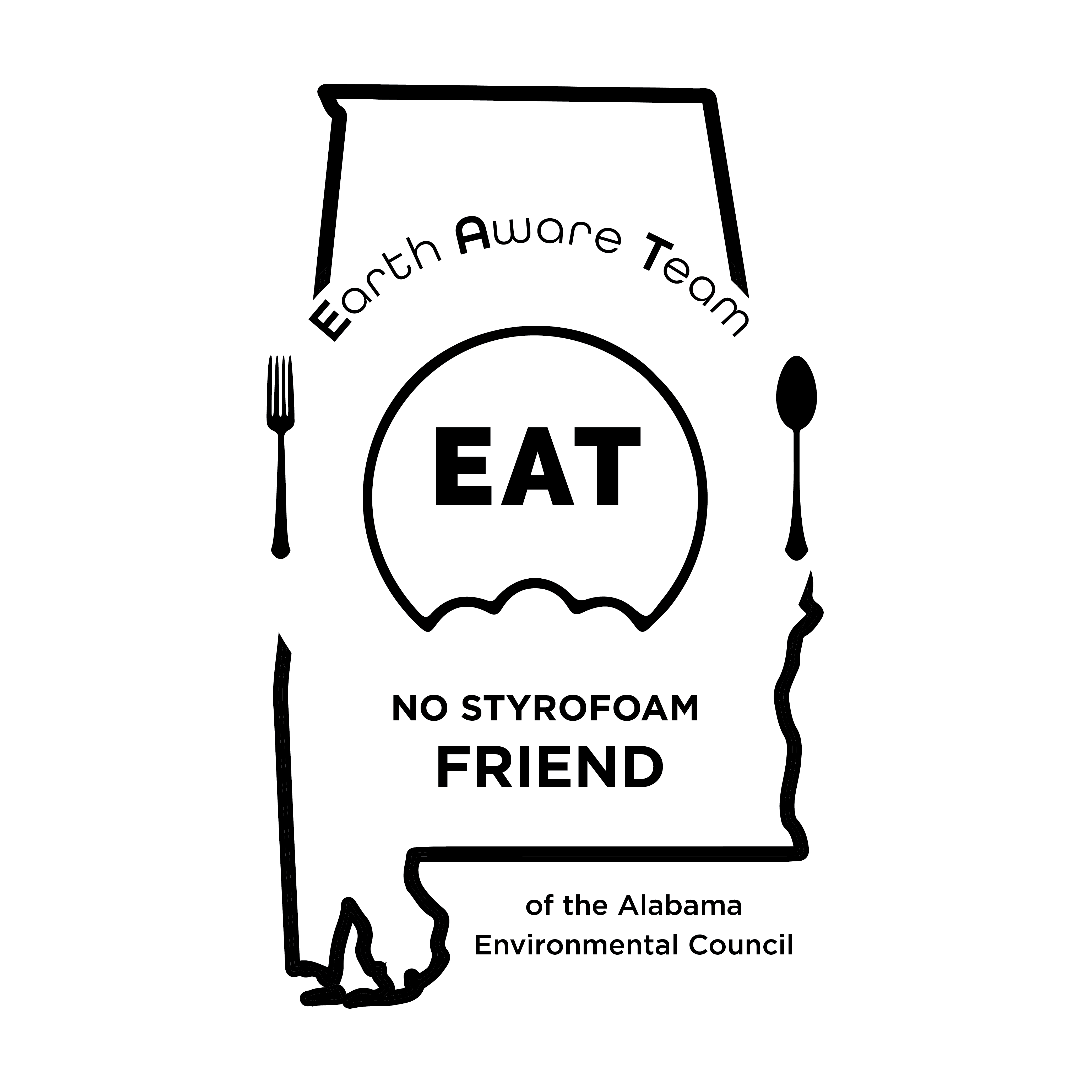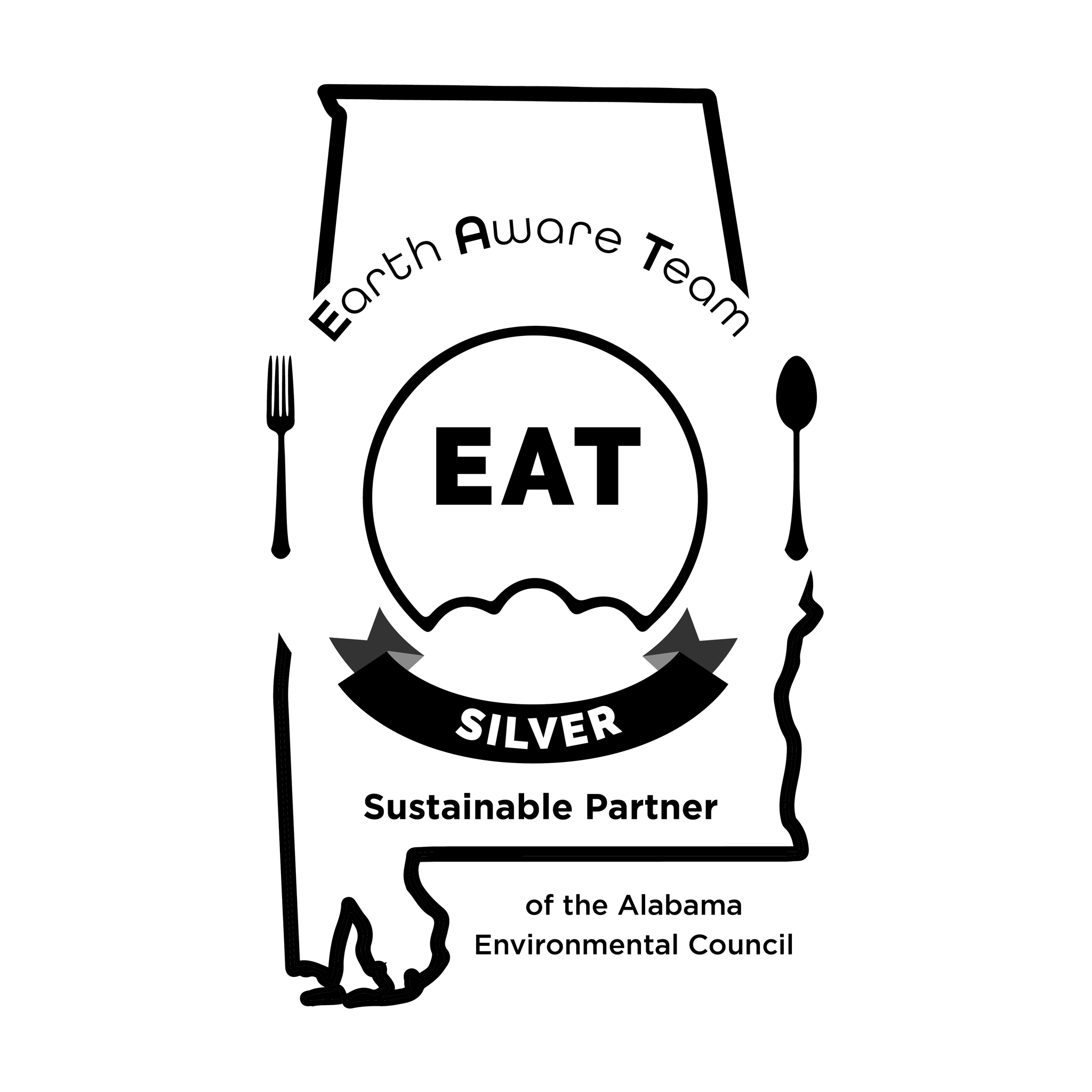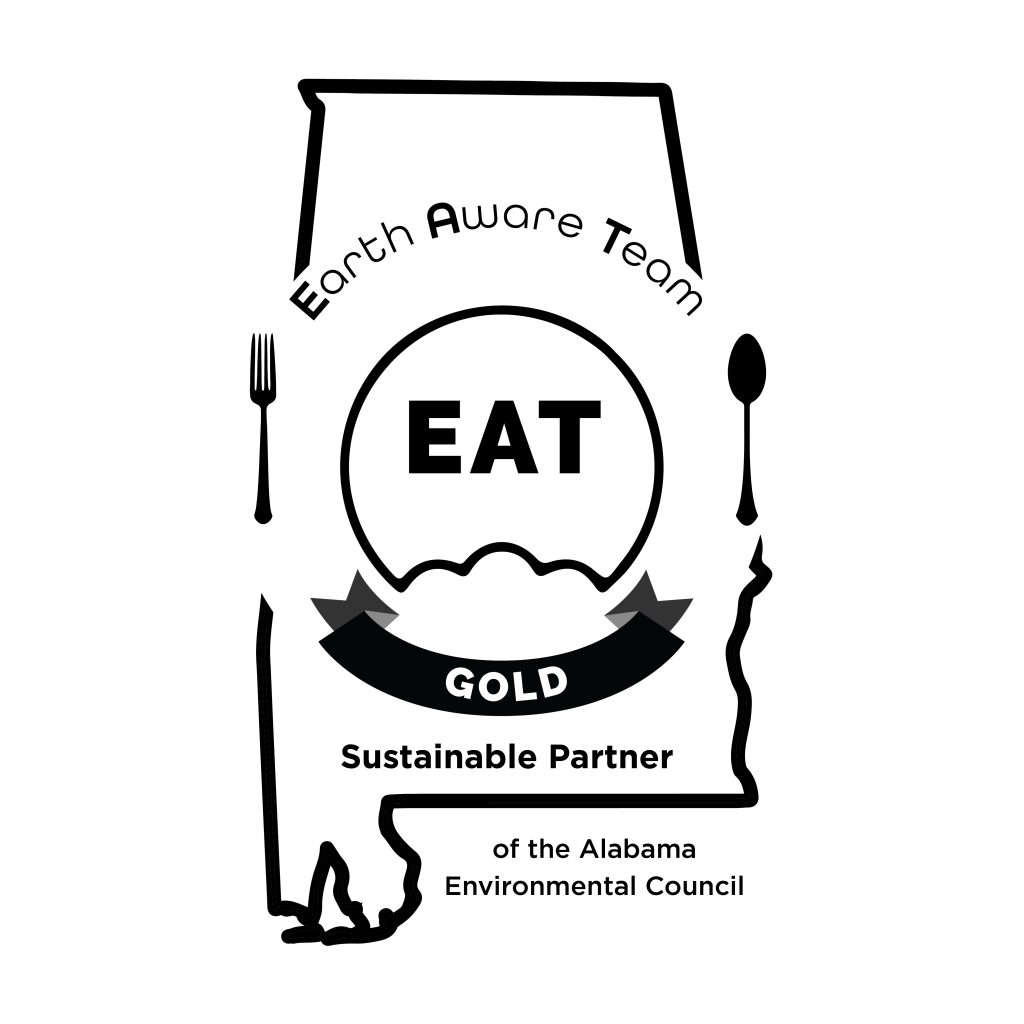LEVEL 1: No Styrofoam Friend

Why no plastic utensils?
Plastic utensils are virtually impossible to recycle through curbside recycling programs, and 98% of all U.S. takeout or delivery meals are consumed at home or a workplace, —- where reusable cutlery is typically available.
- No polystyrene foam (styrofoam) food service containers or any #6 polystyrene plastic containers
- No single use plastic bags for takeout
- Utensils for take out service, other accessories (straws, stirrers, etc) and condiments provided only upon request
Why no Styrofoam?
Styrofoam is the 5th largest source of hazardous waste on the planet. Styrofoam contains toxins that leach into our food and drink, and when disposed of, contaminates the soil, water and especially our air.
Why no single-use plastic bags?
Over 100 billion plastic bags are produced annually in the US and can easily end up as litter on our streets, waterways, and the ocean. Plastic bags are an ecological danger to many species that live in marine and freshwater environments through ingestion and entanglement.

LEVEL 2: Silver Sustainable Partner

Why should you participate in a food rescue program and compost?
- The amount of food wasted is almost exactly equal to the amount of food needed to end hunger.
- Food is the number one item in American landfills.
- Food waste is estimated between 30-40 percent of our food supply.
- Nearly half of our fruits and vegetables get thrown out.
- Meet Criteria for Level 1
- Use composting to reduce landfill waste AND/OR
- Donate leftover food products to food pantry (see Restaurant Resource Partners below)
Or 3 of the following:
- Buy local, preferably organic produce and humanely raised animals when possible (at least 5% of COGS is from local suppliers)
- Offer plant based proteins
- No beverages sold in plastic bottles
- Advertise that you will refill water bottles
- Accept personal containers for take-out

Did you know >>
- Organic waste in landfills generates methane, which is more harmful than CO2.
- Organic waste, such as food waste and yard waste, make up 25 to 50% of what people throw away.
- Composting significantly reduces methane emissions.
- Compost reduces and can even eliminate the need for chemical fertilizers.
- Compost provides carbon sequestration.
LEVEL 3: Gold Sustainable Partner

- Meet criteria for Level 2
- Only reusable foodware used for onsite dining
- Food service containers must contain low to no PFAS (Unless lined with PLA or a clay coating)
>> What is PFAS and why is it bad?
PFAS or Polyfluoroalkyl Substances are chemicals that have been used to make packaging water and grease resistant, however, they are toxic and carcinogenic. These chemicals leach out of the containers and into our food causing numerous health issues. PFAS chemicals have been dubbed “forever chemicals”, because they are extremely persistent, lasting thousands of years. Every American tested has PFAS in their blood and the greater the level of exposure, the greater the the risk of related health issues such as infertility, autoimmune diseases and cancer. Click here to learn more.
Using only reusable foodware for on site dining reduces avoidable waste which deplete natural resources, and raises concerns about toxic chemicals that pollute the environment and endanger human health.
If the container you’re currently using as an alternative to Styrofoam contains PFAS, use a PFAS-Free liner to safeguard your customers from toxic chemicals.